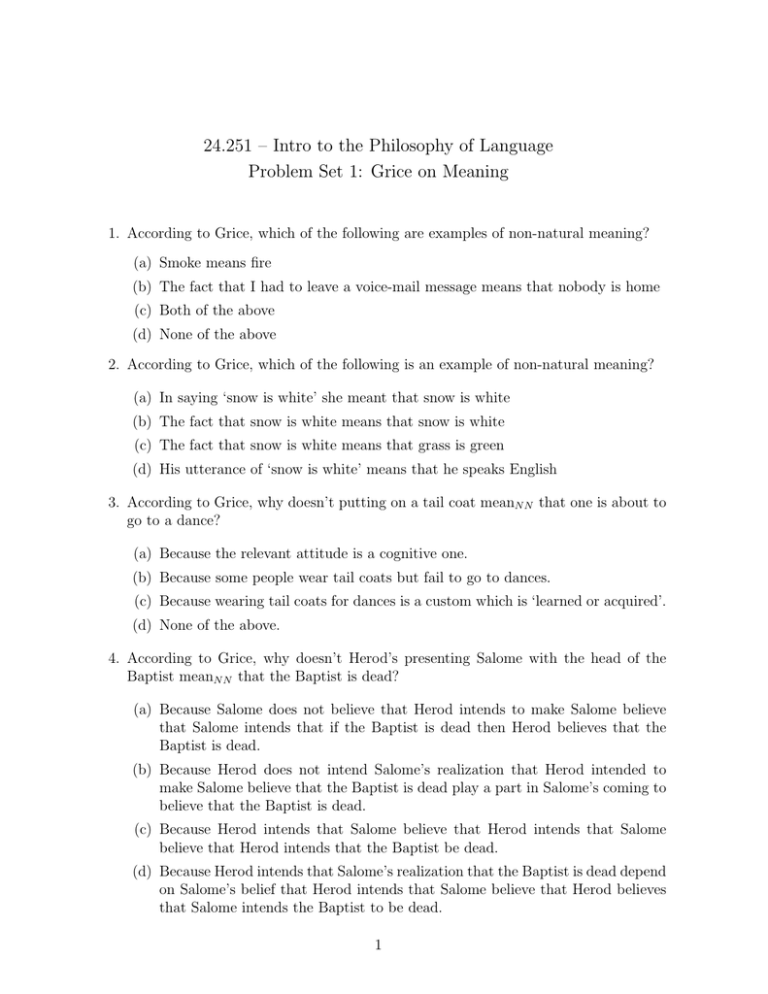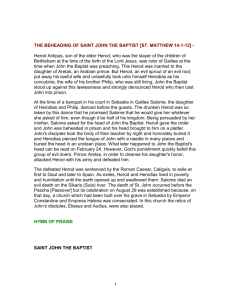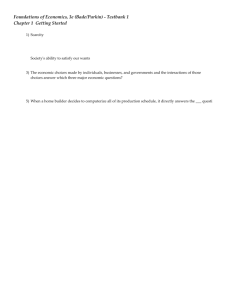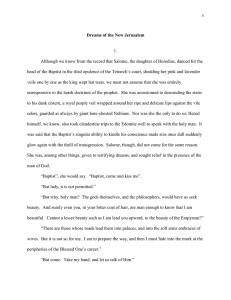24.251 – Intro to the Philosophy of Language
advertisement

24.251 – Intro to the Philosophy of Language Problem Set 1: Grice on Meaning 1. According to Grice, which of the following are examples of non­natural meaning? (a) Smoke means fire (b) The fact that I had to leave a voice­mail message means that nobody is home (c) Both of the above (d) None of the above 2. According to Grice, which of the following is an example of non­natural meaning? (a) In saying ‘snow is white’ she meant that snow is white (b) The fact that snow is white means that snow is white (c) The fact that snow is white means that grass is green (d) His utterance of ‘snow is white’ means that he speaks English 3. According to Grice, why doesn’t putting on a tail coat meanN N that one is about to go to a dance? (a) Because the relevant attitude is a cognitive one. (b) Because some people wear tail coats but fail to go to dances. (c) Because wearing tail coats for dances is a custom which is ‘learned or acquired’. (d) None of the above. 4. According to Grice, why doesn’t Herod’s presenting Salome with the head of the Baptist meanN N that the Baptist is dead? (a) Because Salome does not believe that Herod intends to make Salome believe that Salome intends that if the Baptist is dead then Herod believes that the Baptist is dead. (b) Because Herod does not intend Salome’s realization that Herod intended to make Salome believe that the Baptist is dead play a part in Salome’s coming to believe that the Baptist is dead. (c) Because Herod intends that Salome believe that Herod intends that Salome believe that Herod intends that the Baptist be dead. (d) Because Herod intends that Salome’s realization that the Baptist is dead depend on Salome’s belief that Herod intends that Salome believe that Herod believes that Salome intends the Baptist to be dead. 1 5. Grice claims that there is no ‘reflective paradox’ in saying ‘A uttered x with the intention of inducing a belief by means of the recognition of this intention’. Why not? (There is risk of reflective paradox when an intention is about itself.) (a) Because the speaker needn’t be aware of the mental processes behind her utter­ ance. (b) Because it is not a foregone conclusion that the belief will be induced in the audience whether or not the intention behind the utterance is recognized. (c) Because the problematic phrase can be paraphrased as “A intends to induce a belief in her audience, A intends her utterance to be recognized as so intended, and A intends this recognition to play a part in inducing the belief.” (d) Because some utterances shouldn’t be classified as informative. 2





